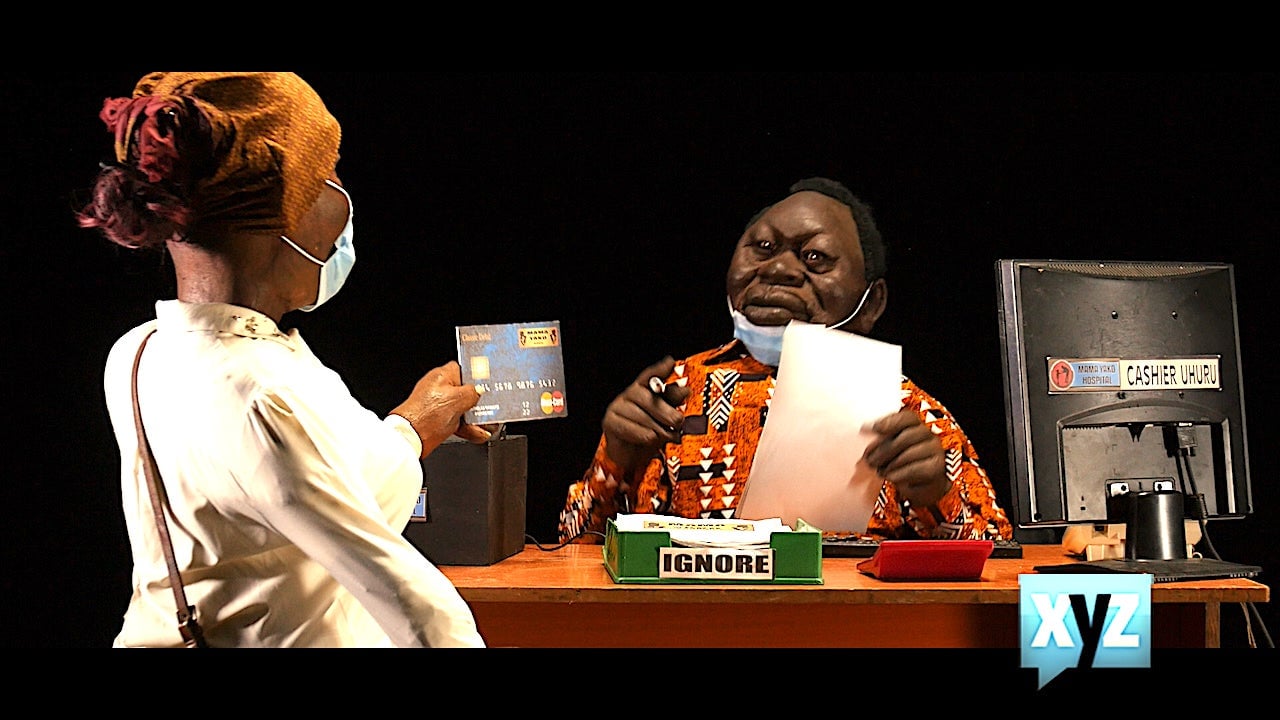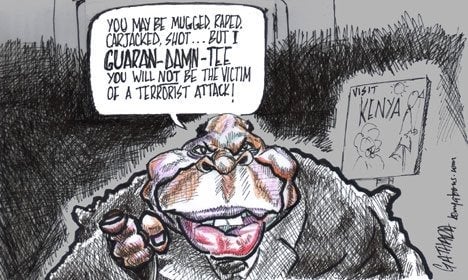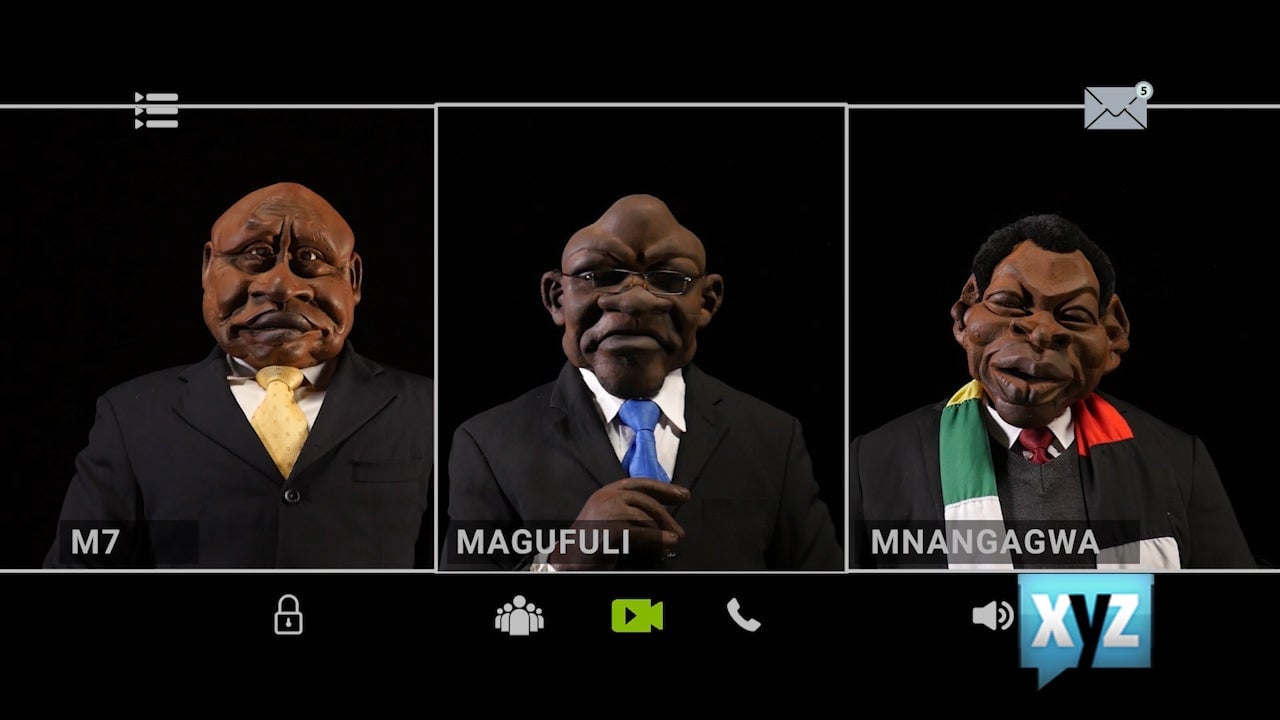In Kenya, a puppet TV show keeps building on the country’s legacy of political satire
Satire has been a key feature of Kenyan political culture for decades now, humorously exposing and criticizing wrongs while also acting as a litmus test for free speech.


Satire has been a key feature of Kenyan political culture for decades now, humorously exposing and criticizing wrongs while also acting as a litmus test for free speech.
Over the years, it has mostly come in the form of political cartoons, music, graffiti and sketch shows. Some popular works in this art include the sketch comedy show Redykyulass and the talk and news satire show The Wicked Edition with Dr. King’ori.
Newspaper cartoonists in particular have been instrumental in satirizing Kenyan politics. In 1992, weeks before an election pitting authoritarian president Daniel arap Moi against other candidates, cartoonist Paul Kelemba, popularly known as Maddo, published what is considered the first caricature of the president, in Society magazine. It depicted Moi unfairly winning a track race.
Before this happened, cartoonist Patrick Gathara says, people were afraid they would be arrested if they satirized the president, but once Kelemba did it, people became bolder in criticizing the status quo.
“One of the main effects of cartoon is basically to humanize power, (that) is to bring the powerful down to the level of normal everyday people so then that people over there can engage with them at that level, where they’re not afraid to speak to them,” Gathara says.

Along the line, Kenyan artists became bold enough to use puppet caricatures to challenge Kenya’s status quo.
Today, one of the longest-running works continuing the tradition of mocking the political elite and drawing attention to Kenya’s social issues is The XYZ Show, a comedy puppet series created by cartoonist Godfrey Mwampembwa, popularly known as Gado, and media entrepreneur Marie Lora-Mungai.
Now in its 14th season, the series, which airs on Kenya’s NTV, was originally inspired by Britain’s Spitting Image and France’s Les Guignols. It features puppets portraying politicians including president Uhuru Kenyatta, deputy president William Ruto, and former prime minister Raila Odinga starring in skits.
This season the show is tackling controversial topics including Kenya’s new biometric identity card, the country’s rising debt concerns, Covid-19 corruption, gender representation in parliament, and even the US presidential election. It also takes a pop at some of continent’s more authoritarian leaders.

Two recurring themes this year are the push for constitutional amendment and politics around the 2022 presidential election and who will succeed president Kenyatta. Edward Khaemba, a scriptwriter for the show and its voice director, tells Quartz Africa this new season is critical because of these two issues.
“In terms of themes and what is happening around the country and what is at stake this season now becomes really really crucial,” he says,
Before the XYZ Show, there was Redykyulass, a trendsetting sketch comedy show that aired on local TV from the late 90s to the early 2000s.
Featuring a dancing Moi played by comedian Walter Mong’are, the show broke long-held taboos about parodying the president, politicians, and other authorities. However Moi’s administration was thin-skinned and regularly detained critics and members of the opposition at will.
“To imagine him dancing the ndombolo in a bar was kinda out of this world,” Gathara says, referring to the Congolese dance style that the Moi character in the show dances.
Joyce Nyairo, a cultural analyst, says Redykyulass was important because “it taught us to laugh at power”.
“That was the impossible; that was the unimaginable—that you could deflate political leadership, make them ordinary, show them to be ugly and grotesque,” she says. “The idea of Moi dancing, to make Moi do ordinary things, was to make him human and therefore to dilute the power that he had.”
This, she says, taught Kenyans that what appeared to be so far from their imagination and so far out of their control was actually ordinary. As a result, she says, it gave Kenyans space for participating in conversation and emboldened them to advocate for change. Kanu’s reign as the country’s ruling party ended in 2002 after 39 years.
But satirists haven’t always gotten a free pass to practice their art.
Gathara, a former political cartoonist at the Daily Nation and The Star newspapers, says he received threats of lawsuits because of his cartoons when he used to work at newspapers. Further, he says, many of his drawings did not get published because of “self-censorship” by editors, who don’t want to “piss off” the government or advertisers.
Gado, the cartoonist and XYZ co-creator, has also faced many lawsuits. One instance was in 2006 when Kenya’s then justice minister, Martha Karua, threatened to take him to court, for an image he had drawn in the Daily Nation depicting her.
The XYZ Show had its fair share of pushback and lawsuits too, mostly in its early seasons, says Khaemba, the scriptwriter and voice director.
“Satire will be there to keep lampooning them, to ridicule them, so that what is abnormal is not normalized,” says Khaemba.